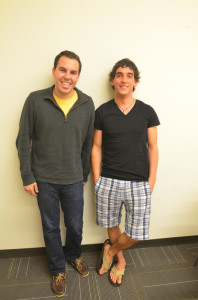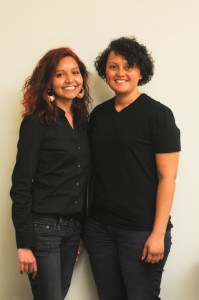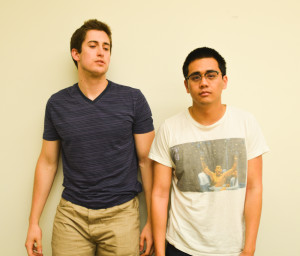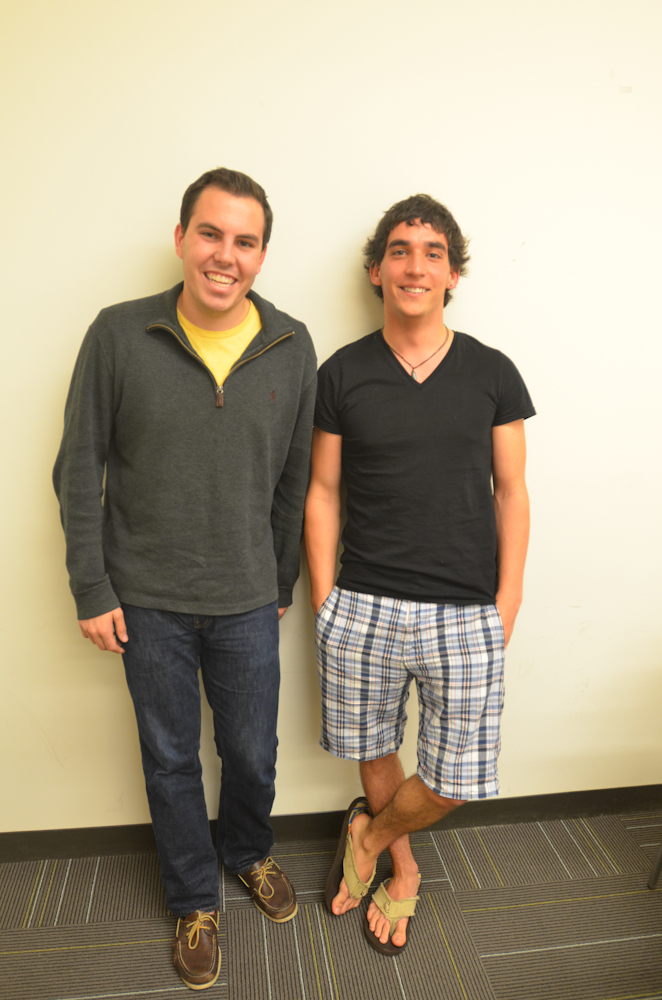As voting for the 2013 ASSU elections approaches, The Daily sat down with the three ASSU Executive slates to discuss their motivations for seeking office and what they hope to accomplish if elected.
”Ashton/Gallagher”: Dan Ashton and Billy Gallagher

Dan Ashton ’14 and Billy Gallagher ’14 have campaigned on the message that their collective experience in the ASSU and in student organizations has prepared them to govern the ASSU.
“The experience is a [requirement] for the role,” Ashton, deputy chair of last year’s ASSU Undergraduate Senate, said. “Our experience is very strong, and shows that we would be very capable of doing this job…We’ve seen an amazing breadth of campus. All of the things we’ve talked about [reflect that] we have viscerally felt these things.”
“I know how the school should work in theory and how things work in reality,” Gallagher, a former Daily editor in chief and president of Kappa Sigma, added. “Seeing the magnitude of response [to my editorial farewell] was awesome, and it gave me a new wind to do something.”
Ashton pointed to his own experience within student government as allowing the slate to effectively reform the ASSU and take advantage of opportunities — such as meeting with student representatives on University committees — neglected by previous ASSU Executives.
“We’ve seen how that broke down with the 8:30 a.m. classes,” Ashton, who is a member of The Daily’s board of directors, noted. “There are some very smart changes that can be made.”
While the slate’s platform nods briefly to advocating on behalf of students in recently contentious issues — such as a University proposal to terminate Suites Dining’s student management — Gallagher and Ashton emphasized their intent to leave a more substantial legacy through offering a more robust mechanism for students to make their voices heard and by making the ASSU more financially accountable to students.
“The majority [of students] would say that they’re not represented well by the ASSU,” Gallagher said. “It’s about empowering people to get stuff done.”
“The ASSU has been proactive in the past,” Ashton added. “It has the means to be proactive now.”
The slate also highlighted their ability to build off existing relationships with administrators and reflect the issues affecting historically underrepresented groups — such as athletes and members of the Greek community — in making the ASSU more responsive to student needs.
“I’ve been very involved in the communities of color,” Ashton, a member of Los Hermanos, noted. “There’s traditionally been a pseudo-divide between [endorsing and non-endorsing] communities.… We represent that bridge. That’s something that the other candidates can’t [do].”
”Gomez-Patiño”: Najla Gomez and Elizabeth Patiño

In their interview with The Daily, Najla Gomez ’14 and Elizabeth Patiño ’14 expressed a similar desire for a more engaged and influential ASSU Executive.
“It is not enough to do advocacy through [student groups],” Gomez said. “We would like to see the ASSU take on a larger role in this advocacy group… It will be our job to ensure the ASSU is seen as a place for people to come with their ideas or their concerns.”
The slate emphasized their commitment to strengthening the ASSU’s influence by demanding greater accountability and performance from student representatives on University committees by creating a new student advisory board within Residential & Dining Enterprises and by training student representatives better.
“We want to make it a consistent system where students are always engaged and always bringing forward their own agenda items,” Gomez said.
“The thing we’ve noticed is that sometimes administrators care, but they have all these other things they feel are more important,” Patiño added. “Making [student issues] jump to the top is a priority.”
The two candidates also proposed additional initiatives to address issues like mental health and sexual assault on campus, boost funding to community centers and advocate greater diversity among students and faculty members.
Gomez and Patiño added that a main focus would be the potential to create a lasting template for more effective student representation, and said that they did not think that their relatively similar backgrounds would hinder their ability to govern.
“There’s no one student who can represent all the communities on campus,” Gomez emphasized, noting the slate’s collection of several endorsements — including those of the Stanford Student Freedom Project and the Students of Color Coalition — to date. “[Those endorsing groups] have a lot of agenda items they plan to help us with.… Ideally, we’ll have an agenda from everyone, but we’ll have something to start off with.”
“We’d pass that knowledge [of ASSU due process] on so the next ASSU Executive can know what they’re taking on,” she added. “It’s a continuous process.”
Gomez and Patiño also noted that they envisioned distinct roles within the Executive if elected, compared to Ashton and Gallagher’s concept of two “co-presidents.”
“The president is here to say, ‘these are the issues we really care about,” Patiño said. “The vice president is [there] to follow through.…We’re holding each other accountable.”
”A Pedagogy of Self-Discovery”: Anthony So and Ryan De Taboada

For Anthony So ’14 and Ryan De Taboada ’14, the revolution is inevitable — and you may even be a part of it too.
This year’s Stanford Chaparral slate has taken a futuristic approach to contesting the upcoming ASSU elections, featuring, in So, a robot presidential candidate and, in De Taboada, a portable battery pack.
“We’re all robots and we’d like everyone else to know they’re robots too,” So said.
So and De Taboada downplayed the significance of issues like a controversial class scheduling proposal, noting that the existence of a shared consciousness among Stanford students offered the opportunity to dissolve redundant power structures like the ASSU.
“We’re abolishing all government, so nothing bad can happen,” So said.
“We’d still allocate money to clubs,” De Taboada added. “There’d only be one club.”
Meanwhile, the slate also put forward an ambitious capital plan for implementation during their time in office.
“We need more outlets… [and] we need a monorail,” So said.
Acknowledging the slate’s distant chance of being elected, So said he might focus his attention instead on persuading his fellow students — and rival Executive slates — of their true robotic nature, as concealed beneath superficially distinct human forms.
“I guarantee you that if you just gutted any number of those minority people, they’d all look the same on the inside,” So claimed.
“We should be focusing more on convincing Dan [Ashton] and Billy [Gallagher] that they’re robots,” De Taboada added.
